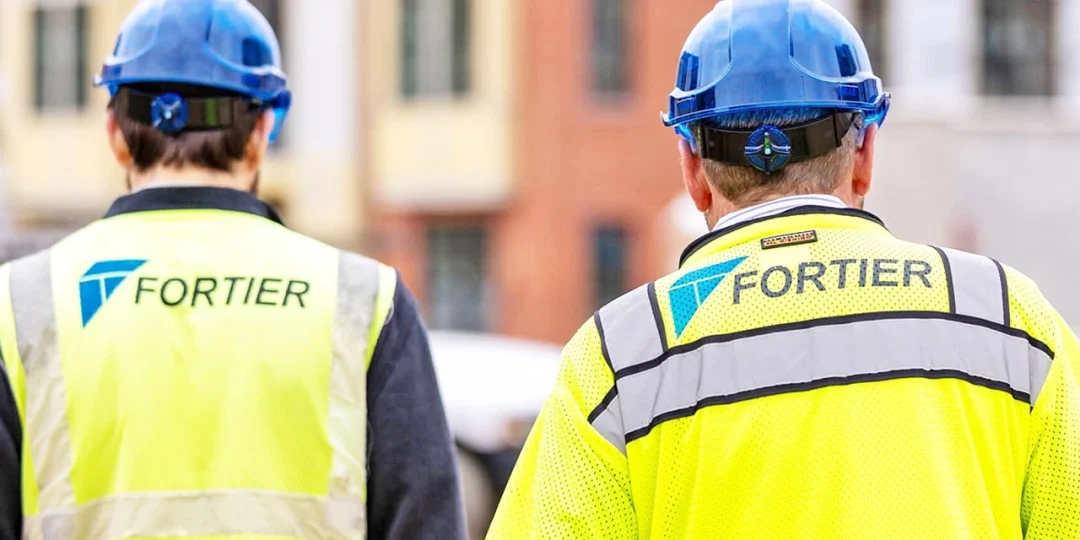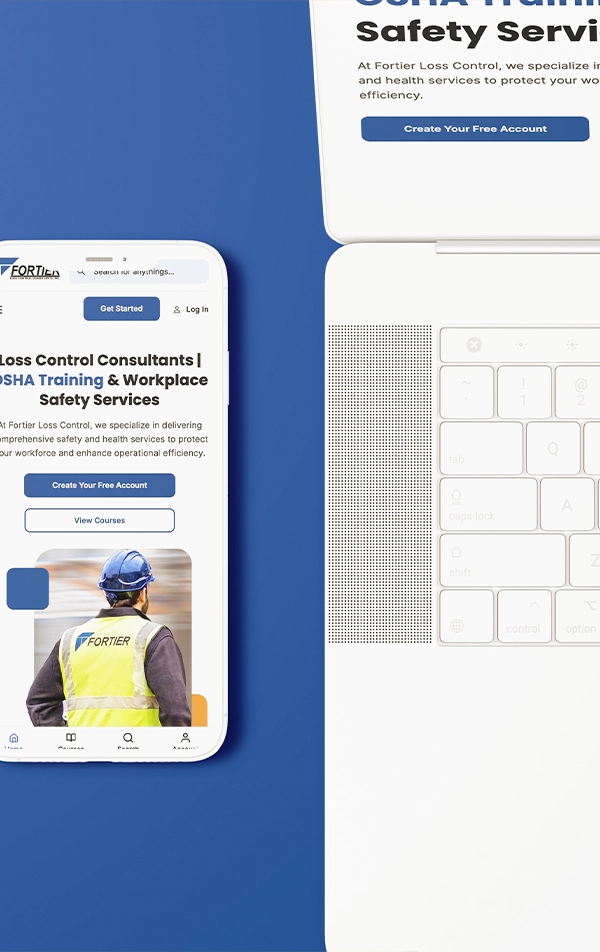The Critical Role of OSHA Training in Workplace Safety
Workplace safety is not just a regulatory requirement—it is a moral and financial imperative. Every year, thousands of preventable workplace accidents result in injuries, fatalities, and significant economic losses. Without proper safety measures, companies risk not only the well-being of their employees but also their financial stability. Occupational hazards, if unchecked, can lead to severe injuries, lost productivity, and costly legal ramifications, including fines, lawsuits, and increased workers’ compensation claims.
The Occupational Safety and Health Administration (OSHA) plays a pivotal role in establishing safety protocols designed to mitigate risks across various industries. These standards set forth best practices for hazard identification, employee training, and workplace inspections. Compliance with OSHA regulations is not merely about avoiding penalties—it is about fostering a culture of safety where employees can perform their duties without fear of harm. A well-trained workforce is the first line of defense against accidents, ensuring that businesses operate smoothly while maintaining their reputation as responsible employers.
In industries such as construction, manufacturing, healthcare, and warehousing, safety risks are particularly pronounced. Workers are frequently exposed to heavy machinery, hazardous materials, elevated workspaces, and electrical hazards. Proper training ensures that they recognize potential dangers, utilize protective equipment effectively, and follow emergency protocols. Employers who prioritize OSHA training create an environment where safety becomes second nature, reducing the likelihood of incidents and ensuring long-term operational success.
Understanding OSHA 10 and OSHA 30: Key Differences
OSHA offers two primary safety training programs: the OSHA 10-hour and OSHA 30-hour courses. Each course serves a distinct purpose, catering to different levels of workplace responsibility and industry requirements.
OSHA 10-Hour Training: The Foundation of Workplace Safety
The OSHA 10-hour training is designed for entry-level workers, equipping them with the fundamental knowledge required to navigate workplace hazards. This course is especially beneficial for employees in industries such as construction, general industry, and maritime, where safety risks are prevalent. Participants learn essential safety topics, including:
- Introduction to OSHA and Workers’ Rights – Understanding employee protections under OSHA regulations.
- Fall Protection – Recognizing fall hazards and implementing preventative measures.
- Electrical Safety – Identifying potential electrical risks and ensuring proper handling of equipment.
- Hazard Communication – Proper labeling and handling of hazardous substances.
- Personal Protective Equipment (PPE) – Learning how to use gloves, helmets, goggles, and other protective gear.
This training instills a safety-first mindset, ensuring that workers can identify potential hazards and take corrective actions to prevent accidents before they occur.
OSHA 30-Hour Training: Advanced Safety Leadership
The OSHA 30-hour course is an expanded program designed for supervisors, managers, and safety officers who oversee workplace safety protocols. This in-depth training goes beyond basic hazard recognition and delves into the responsibilities of leadership in maintaining a secure work environment. The curriculum includes:
- Advanced Risk Assessment and Hazard Prevention – Proactively identifying and mitigating workplace dangers.
- Recordkeeping and Reporting Requirements – Understanding the importance of documenting safety measures and incident reports.
- Emergency Action Plans – Developing response strategies for fires, natural disasters, and workplace violence.
- Health and Environmental Safety – Addressing concerns related to air quality, noise exposure, and hazardous waste disposal.
- Employee Safety Engagement – Implementing strategies to create a culture of continuous safety improvement.
This training is crucial for individuals in managerial roles, as they are responsible for enforcing safety regulations, conducting inspections, and ensuring compliance with OSHA standards. By completing OSHA 30-hour training, supervisors gain the skills needed to lead by example and foster a proactive approach to workplace safety.
Why Nashville Businesses Must Prioritize OSHA Compliance
Nashville’s thriving economy is fueled by diverse industries, including construction, manufacturing, healthcare, and logistics. As the city continues to expand, so do the risks associated with high-paced industrial and commercial operations. From large-scale infrastructure projects to bustling medical facilities, workplace hazards are an inevitable reality. OSHA compliance is not just a legal necessity—it is a proactive approach to safeguarding employees, minimizing liabilities, and ensuring operational efficiency.
Non-compliance with OSHA regulations can result in severe penalties, legal complications, and reputational damage. More importantly, neglecting safety protocols puts lives at risk. A single workplace accident can lead to devastating consequences, including prolonged downtime, increased insurance costs, and potential lawsuits. By prioritizing OSHA training, Nashville businesses reinforce their commitment to employee well-being while creating a resilient and productive workforce.
For businesses in high-risk industries, safety training is an investment rather than an expense. A well-trained team is less likely to experience workplace injuries, leading to fewer disruptions and reduced workers’ compensation claims. Additionally, companies with strong safety records gain a competitive advantage, attracting top-tier talent and fostering trust among clients and stakeholders.

Fortier Loss Control: Your Trusted Partner in Safety Training
Fortier Loss Control has established itself as a premier provider of OSHA 10 and OSHA 30 training in Nashville, offering tailored safety programs designed to address industry-specific challenges. With a team of seasoned safety professionals, they provide expert-led instruction that goes beyond basic compliance, equipping businesses with the tools and knowledge necessary to create a culture of workplace safety.
Unlike generic training providers, Fortier Loss Control customizes each session to the unique needs of different industries. Whether working with construction firms managing high-risk projects or healthcare organizations navigating biohazard concerns, their courses are designed to provide practical, real-world safety applications.
Businesses partnering with Fortier Loss Control benefit from:
- Industry-Specific Training – Customized safety education that aligns with OSHA regulations and sector-specific risks.
- Experienced Instructors – Trainers with extensive backgrounds in occupational safety and regulatory compliance.
- Hands-On Learning Approaches – Interactive and scenario-based training that enhances retention and real-world application.
- Compliance Assurance – Guidance to help businesses maintain OSHA compliance and avoid costly violations.
By choosing Fortier Loss Control, companies gain more than just OSHA certification—they gain a strategic partner in workplace safety.
Comprehensive Curriculum: What OSHA 10/30 Training Covers
Both OSHA 10 and OSHA 30 training programs deliver a robust curriculum designed to prepare employees and management teams for workplace hazards. These courses cover essential safety topics while also emphasizing leadership, hazard prevention, and emergency preparedness.
OSHA 10-Hour Course: Core Safety Training for Workers
Designed for entry-level employees, the OSHA 10-hour course provides fundamental safety knowledge that applies across various industries. Participants receive instruction on:
- Fall Protection – Preventing injuries from slips, trips, and falls—one of the leading causes of workplace accidents.
- Electrical Safety – Understanding risks associated with exposed wiring, faulty equipment, and high-voltage systems.
- Hazard Communication – Proper labeling, handling, and disposal of hazardous chemicals.
- Personal Protective Equipment (PPE) – Selection, usage, and maintenance of safety gear.
- Emergency Response Procedures – Training on fire safety, evacuation plans, and first-aid measures.
OSHA 30-Hour Course: Advanced Safety Training for Supervisors
The OSHA 30-hour training is structured for foremen, supervisors, and safety managers responsible for enforcing safety standards within an organization. This course expands upon OSHA 10 training, offering in-depth instruction on:
- Worksite Inspections and Hazard Recognition – Identifying risks before they escalate into serious incidents.
- Recordkeeping and Compliance Documentation – Maintaining OSHA-required logs and incident reports.
- Industrial Hygiene and Workplace Health Risks – Mitigating exposure to toxic substances, noise pollution, and respiratory hazards.
- Machine Guarding and Lockout/Tagout Procedures – Ensuring safe operation of heavy machinery and electrical equipment.
- Creating a Safety Culture – Implementing policies that promote ongoing safety awareness and accountability.
Businesses that integrate OSHA 10/30 training into their safety programs foster an environment where employees are empowered to prioritize risk prevention. Whether addressing slip-and-fall incidents or mitigating chemical exposure, this training equips workers and leaders with the expertise needed to maintain compliance and promote a hazard-free workplace.
By enrolling in OSHA 10/30 training with Fortier Loss Control, Nashville businesses take a proactive step toward ensuring long-term safety, operational efficiency, and regulatory compliance. In an ever-evolving industrial landscape, investing in workplace safety is not just a necessity—it is the foundation for sustained success.
Why Nashville Businesses Must Prioritize OSHA Compliance
Nashville’s thriving economy is fueled by diverse industries, including construction, manufacturing, healthcare, and logistics. As the city continues to expand, so do the risks associated with high-paced industrial and commercial operations. From large-scale infrastructure projects to bustling medical facilities, workplace hazards are an inevitable reality. OSHA compliance is not just a legal necessity—it is a proactive approach to safeguarding employees, minimizing liabilities, and ensuring operational efficiency.
Non-compliance with OSHA regulations can result in severe penalties, legal complications, and reputational damage. More importantly, neglecting safety protocols puts lives at risk. A single workplace accident can lead to devastating consequences, including prolonged downtime, increased insurance costs, and potential lawsuits. By prioritizing OSHA training, Nashville businesses reinforce their commitment to employee well-being while creating a resilient and productive workforce.
For businesses in high-risk industries, safety training is an investment rather than an expense. A well-trained team is less likely to experience workplace injuries, leading to fewer disruptions and reduced workers’ compensation claims. Additionally, companies with strong safety records gain a competitive advantage, attracting top-tier talent and fostering trust among clients and stakeholders.

Fortier Loss Control: Your Trusted Partner in Safety Training
Fortier Loss Control has established itself as a premier provider of OSHA 10 and OSHA 30 training in Nashville, offering tailored safety programs designed to address industry-specific challenges. With a team of seasoned safety professionals, they provide expert-led instruction that goes beyond basic compliance, equipping businesses with the tools and knowledge necessary to create a culture of workplace safety.
Unlike generic training providers, Fortier Loss Control customizes each session to the unique needs of different industries. Whether working with construction firms managing high-risk projects or healthcare organizations navigating biohazard concerns, their courses are designed to provide practical, real-world safety applications.
Businesses partnering with Fortier Loss Control benefit from:
- Industry-Specific Training – Customized safety education that aligns with OSHA regulations and sector-specific risks.
- Experienced Instructors – Trainers with extensive backgrounds in occupational safety and regulatory compliance.
- Hands-On Learning Approaches – Interactive and scenario-based training that enhances retention and real-world application.
- Compliance Assurance – Guidance to help businesses maintain OSHA compliance and avoid costly violations.
By choosing Fortier Loss Control, companies gain more than just OSHA certification—they gain a strategic partner in workplace safety.
Comprehensive Curriculum: What OSHA 10/30 Training Covers
Both OSHA 10 and OSHA 30 training programs deliver a robust curriculum designed to prepare employees and management teams for workplace hazards. These courses cover essential safety topics while also emphasizing leadership, hazard prevention, and emergency preparedness.
OSHA 10-Hour Course: Core Safety Training for Workers
Designed for entry-level employees, the OSHA 10-hour course provides fundamental safety knowledge that applies across various industries. Participants receive instruction on:
- Fall Protection – Preventing injuries from slips, trips, and falls—one of the leading causes of workplace accidents.
- Electrical Safety – Understanding risks associated with exposed wiring, faulty equipment, and high-voltage systems.
- Hazard Communication – Proper labeling, handling, and disposal of hazardous chemicals.
- Personal Protective Equipment (PPE) – Selection, usage, and maintenance of safety gear.
- Emergency Response Procedures – Training on fire safety, evacuation plans, and first-aid measures.
OSHA 30-Hour Course: Advanced Safety Training for Supervisors
The OSHA 30-hour training is structured for foremen, supervisors, and safety managers responsible for enforcing safety standards within an organization. This course expands upon OSHA 10 training, offering in-depth instruction on:
- Worksite Inspections and Hazard Recognition – Identifying risks before they escalate into serious incidents.
- Recordkeeping and Compliance Documentation – Maintaining OSHA-required logs and incident reports.
- Industrial Hygiene and Workplace Health Risks – Mitigating exposure to toxic substances, noise pollution, and respiratory hazards.
- Machine Guarding and Lockout/Tagout Procedures – Ensuring safe operation of heavy machinery and electrical equipment.
- Creating a Safety Culture – Implementing policies that promote ongoing safety awareness and accountability.
Businesses that integrate OSHA 10/30 training into their safety programs foster an environment where employees are empowered to prioritize risk prevention. Whether addressing slip-and-fall incidents or mitigating chemical exposure, this training equips workers and leaders with the expertise needed to maintain compliance and promote a hazard-free workplace.
By enrolling in OSHA 10/30 training with Fortier Loss Control, Nashville businesses take a proactive step toward ensuring long-term safety, operational efficiency, and regulatory compliance. In an ever-evolving industrial landscape, investing in workplace safety is not just a necessity—it is the foundation for sustained success.
Who Needs OSHA 10 and Who Requires OSHA 30?
Determining the appropriate OSHA training for employees is a critical step in ensuring workplace safety and regulatory compliance. OSHA 10 and OSHA 30 training programs serve distinct purposes, each tailored to different levels of workplace responsibility and risk exposure.
OSHA 10: Essential Training for General Workers
The OSHA 10-hour training course is designed for entry-level workers in industries where safety hazards are prevalent. This foundational course equips employees with the basic knowledge needed to recognize and mitigate workplace risks. Industries that commonly require OSHA 10 certification include:
- Construction – Workers handling tools, operating at heights, or working around heavy machinery.
- Warehousing and Logistics – Employees involved in material handling, forklift operation, and inventory management.
- Manufacturing – Line workers exposed to hazardous machinery, electrical risks, and industrial processes.
- Retail and Hospitality – Staff working in environments where slip-and-fall risks, fire hazards, and ergonomic concerns exist.
OSHA 10 training emphasizes hazard awareness, safe work practices, and emergency response protocols. It ensures that workers understand their rights under OSHA regulations and how to actively contribute to a safer workplace.
OSHA 30: Advanced Training for Supervisors and Safety Leaders
The OSHA 30-hour course is designed for individuals with leadership roles, including foremen, site supervisors, project managers, and safety officers. This advanced training delves deeper into workplace hazards, risk assessment strategies, and regulatory compliance. Those who should undergo OSHA 30 training include:
- Construction Superintendents – Overseeing job sites and ensuring workers adhere to safety protocols.
- Project Managers – Coordinating construction, industrial, and logistics operations with a focus on risk mitigation.
- Foremen and Team Leads – Managing daily operations and ensuring employee safety within their teams.
- Safety Coordinators – Implementing workplace safety programs, conducting inspections, and maintaining compliance records.
Employers must assess their workforce’s roles and responsibilities to ensure that the right personnel receive the appropriate level of OSHA training. By doing so, businesses not only meet compliance requirements but also create a structured safety hierarchy that prevents accidents and minimizes liability risks.

The Long-Term Benefits of OSHA Certification for Employees and Employers
OSHA training provides more than just a regulatory checkbox—it cultivates a culture of safety, accountability, and operational excellence. Both employees and employers experience significant long-term benefits from OSHA certification.
For Employees: A Safer and More Skilled Workforce
Workers who undergo OSHA training develop a heightened sense of hazard awareness, allowing them to proactively identify and mitigate risks before accidents occur. The benefits include:
- Increased Job Security – Many industries prioritize hiring OSHA-certified workers, making certification a valuable credential.
- Reduced Risk of Workplace Injuries – Proper safety knowledge minimizes the likelihood of incidents, ensuring employees remain healthy and productive.
- Enhanced Career Growth – OSHA training demonstrates a commitment to workplace safety, opening doors for advancement into supervisory roles.
For Employers: Improved Efficiency and Cost Savings
Businesses that invest in OSHA training benefit from a workforce that understands safety protocols and regulatory requirements. This translates into:
- Fewer Workplace Incidents – A well-trained workforce reduces the frequency of injuries, minimizing disruptions and downtime.
- Lower Workers’ Compensation Costs – Fewer accidents mean reduced insurance claims and lower premiums.
- Regulatory Compliance – Meeting OSHA standards prevents costly fines and legal issues that could arise from safety violations.
- Stronger Company Reputation – Clients, partners, and stakeholders are more likely to trust and engage with businesses that prioritize employee well-being.
By implementing OSHA training as a core component of their safety strategy, companies create a proactive environment where workers feel protected, valued, and empowered to uphold best practices.
On-Site vs. Online Training: Choosing the Right Format for Your Team
To accommodate diverse learning preferences and operational constraints, Fortier Loss Control offers both on-site and online OSHA 10 and OSHA 30 training. Each format has its own advantages, making it important for businesses to choose the option that best aligns with their team’s needs.
On-Site Training: Hands-On Learning for High-Risk Environments
On-site OSHA training is ideal for businesses that operate in high-risk industries, where hands-on experience is crucial for reinforcing safety protocols. This option provides:
- Interactive Learning – Real-time instruction from experienced safety professionals with industry-specific expertise.
- Practical Demonstrations – Hands-on exercises that simulate real-world workplace hazards and safety responses.
- Immediate Feedback – Participants can ask questions, clarify uncertainties, and engage in discussions tailored to their work environment.
On-site training ensures that workers are prepared to handle workplace hazards effectively, making it a preferred option for construction, manufacturing, and industrial operations.
Online Training: Flexible Learning for Busy Professionals
For businesses seeking a more flexible approach, online OSHA training allows employees to complete courses at their own pace without disrupting daily workflows. The benefits of online training include:
- Self-Paced Learning – Participants can progress through modules at a comfortable speed, revisiting key concepts as needed.
- Convenience – Employees can complete training from any location, reducing the need for travel or schedule adjustments.
- Compliance Accessibility – Businesses can ensure their entire workforce remains OSHA-compliant without pausing operations.
Online training is particularly useful for office-based roles, remote teams, or companies that need a scalable training solution for large workforces.
Regardless of the training format chosen, Fortier Loss Control ensures that all participants receive comprehensive, high-quality instruction that translates into real-world safety improvements.
By selecting the right OSHA training program and delivery method, Nashville businesses can foster a safer, more compliant, and more efficient work environment—one where employees and employers alike reap the benefits of proactive risk management.
Building a Culture of Safety Beyond Compliance
Regulatory compliance serves as the foundation of workplace safety, but true safety excellence extends far beyond meeting OSHA requirements. Businesses that embed safety into their organizational culture create an environment where vigilance, accountability, and proactive risk management become second nature. When safety is prioritized at every level—from leadership to frontline workers—workplace hazards diminish, morale improves, and overall efficiency increases.
A culture of safety is not built overnight. It requires continuous education, open communication, and an unwavering commitment from both employers and employees. Companies that integrate OSHA training into their core values foster a mindset where safety is a shared responsibility rather than a checklist item. This approach empowers workers to identify and address potential hazards before they escalate, reinforcing a work environment where employees feel valued and protected.
Beyond reducing accidents, a strong safety culture contributes to:
- Higher Employee Engagement – Workers who feel secure in their environment are more motivated and productive.
- Lower Turnover Rates – Employees are more likely to remain with a company that actively invests in their well-being.
- Improved Reputation – Businesses known for their safety commitment attract top talent and gain a competitive edge in the industry.
- Operational Efficiency – A well-trained workforce experiences fewer disruptions, leading to higher productivity and cost savings.
Safety should not be an afterthought—it should be a defining characteristic of a company’s operational philosophy. When safety becomes ingrained in workplace culture, it transforms from a regulatory obligation into a strategic advantage.

FAQs:
1. What is the difference between OSHA 10 and OSHA 30 training, and which one do I need?
Answer: OSHA 10 is a 10-hour training course designed for entry-level workers, providing basic safety awareness and hazard recognition skills. It is ideal for employees in industries like construction, manufacturing, and warehousing. OSHA 30, on the other hand, is a more comprehensive 30-hour course tailored for supervisors, foremen, project managers, and safety officers. It covers advanced safety regulations, risk assessment, and compliance management. The right course for you depends on your role—workers need OSHA 10, while those in leadership or safety enforcement positions should take OSHA 30.
2. Why should my business choose Fortier Loss Control for OSHA training in Nashville?
Answer: Fortier Loss Control is a trusted leader in workplace safety training, offering expert-led OSHA 10 and OSHA 30 courses tailored to the specific needs of various industries. Their experienced instructors provide practical, real-world knowledge that goes beyond textbook learning, ensuring that employees and supervisors can apply safety principles effectively. Additionally, Fortier Loss Control offers both on-site and online training options, providing flexibility to accommodate different business needs.
3. How does OSHA training benefit my company beyond regulatory compliance?
Answer: OSHA training does more than just help businesses avoid fines—it fosters a strong safety culture, reduces workplace injuries, and improves overall efficiency. Companies that invest in OSHA 10/30 training see lower workers’ compensation costs, reduced liability risks, and increased employee morale. A well-trained workforce is more productive, and maintaining a safe work environment enhances a company’s reputation, making it more attractive to clients and business partners.

Final Thoughts: Investing in Safety for a More Secure Workplace
Workplace safety is an ongoing commitment that demands foresight, education, and proactive implementation. OSHA 10 and OSHA 30 training are not just compliance measures; they are vital tools for fostering a safer, more efficient work environment. By equipping employees and supervisors with the knowledge and skills necessary to identify and mitigate risks, businesses build a workforce that is both confident and prepared.
Fortier Loss Control’s expert-led training programs provide Nashville businesses with the resources needed to strengthen compliance, enhance workplace safety, and protect their most valuable asset—their employees. Through tailored instruction and industry-specific training, they help organizations move beyond compliance to create workplaces where safety is a guiding principle.
Investing in OSHA training today means investing in a future where workplace accidents are minimized, employee morale is strengthened, and businesses thrive. A safe workplace is not just a regulatory achievement—it is the foundation for long-term success.





